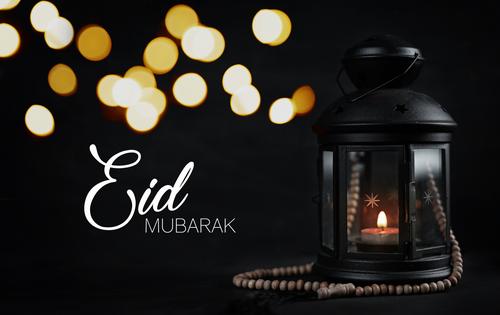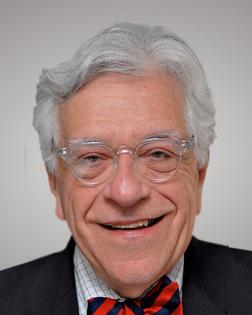The God Squad: Eid Mubarak
Since the 7th century, millions of Muslims have made a pilgrimage to Mecca to celebrate a sacrifice made by a Jewish guy 2,500 years ago.
This celebration and this pilgrimage, which happened this week, and brought almost 2 million pilgrims to Mecca, is the greatest interfaith story in the history of the world. It is called Eid al-Adha and it falls on the 10th day of the 12th and final month of the Muslim calendar called Dhu al-Hijja. This week, from June 16 to June 18, was Eid al-Adha.
I have apologized many times for my habit of conflating interfaith dialogue with what happens between Jews and Christians. This Judeo-Christian focus was obviously the result of my friendship with Father Tom Hartman, but it wrongly omitted the faith of Islam embraced by more than 1.5 billion people. This is surely an appropriate week to correct my sin of omission. It is also a necessary week to embrace the spiritual virtues of Islam because we are in a period when trying to praise Islam is like trying to praise Christianity during the Crusades. Parts of Islam have been tragically hijacked by those who in the name of a religion of peace have chosen to wage war on the West and that includes Christians and Jews, but particularly Jews and other supporters of the Jewish State of Israel. Nonetheless, I want to lift up for praise this week a religion that is having a tough time fighting off those who would pervert and distort its core message of charity and peace. Remember that in this column for the past three decades our Chanukah greetings were always written by a priest and our Christmas greetings were always written by a rabbi.
The story of Eid al-Adha is remarkable because it is a Muslim midrash about the biblical story of the sacrifice of Isaac by Abraham in Genesis chapter 22. A midrash is the Hebrew word for an interpretive tale about a story in the Bible. In the biblical account, God commands Abraham to sacrifice Isaac as a test of faith. Although the Bible is quite clear that the command to Abraham was to sacrifice Isaac, in the sacred writings of the Quran, the holy book of Islam, Ishmael, the half-brother of Isaac, is the intended sacrifice. The rest of the story is the same. God holds back Abraham’s knife at the last moment and offers a ram caught by its horns in a thicket as a replacement sacrifice.
Since Ishmael was considered to be the ancestor of the Arabs and Isaac was the ancestor of the Jews it is not surprising that Ishmael plays a greater role in the Muslim midrash. The holiday of celebration for the survival of their ancestor became Eid al-Adha. Animal sacrifices (udhiyah) are a major part of the holiday for Muslims. The meat from a hallal animal is divided into three parts with one-third being donated to the poor.
Although the stories differ, the main point is that Jews and Muslims consider Abraham to be their ancestor and patriarch. This is a powerful connection but not by any means the only link between Islam and the other two Abrahamic faiths. Jesus is considered by Muslims to have been a prophet of God. Muslims will only eat meat that is kosher for Jews. Both Judaism and Islam prohibit visual art or statues in their places of worship.
Over time the story of Abraham became mixed with the story of Mohammed who traveled from Medina to Mecca to cleanse the holy site of idols. This journey is replicated by all Muslims who can make the pilgrimage called the Hajj. Hajj is an Arabic word taken from the Hebrew word Hag that means one of the three biblical Jewish pilgrim festivals to Jerusalem (Passover, Sukkot, and Shavuot).
Having almost two million pilgrims descend upon Mecca and surrounding sites every year on Eid al-Adha is a daunting challenge to the Kingdom. In 2015, thousands of pilgrims were killed in a sudden stampede. I am impressed that no political chants or signs are allowed during the Hajj. The spiritual integrity of the world’s largest pilgrimage is carefully protected by the Kingdom. The value of humility is conveyed by the practice of having all pilgrims dress in two plain white sheets so as to erase all class distinctions. The Hajj is one of the Five Pillars of Islam, their foundational spiritual practices: 1. The declaration of faith (shahadah); 2. Prayer (salah); 3. Charity (zakat); 4. Fasting (sawm); 5. Pilgrimage (Hajj).
An Eid/Shavuot prayer: May the Hostages be freed and allowed to worship God in Israel and may innocent Gazans be allowed to worship Allah in Mecca soon, dear God, soon.
Eid mubarak
(Send ALL QUESTIONS AND COMMENTS to The God Squad via email at godsquadquestion@aol.com. Rabbi Gellman is the author of several books, including “Religion for Dummies,” co-written with Fr. Tom Hartman. Also, the new God Squad podcast is now available.)
©2024 The God Squad. Distributed by Tribune Content Agency, LLC.
(c) 2024 THE GOD SQUAD DISTRIBUTED BY TRIBUNE MEDIA SERVICES, INC.












Comments